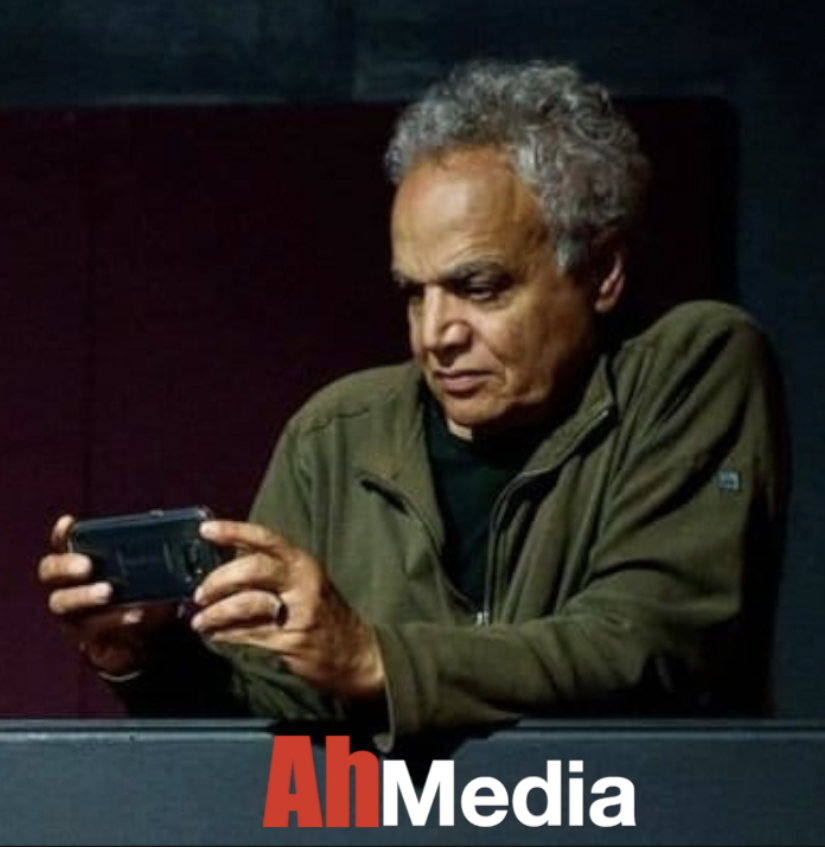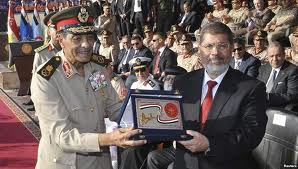Accidental Hero!!
In his book “Presidential Leadership and the Creation of the America Era,” Joseph Nye of Harvard University divided American presidents into two groups. One is made up of “transformational” leaders — those with the grandiose goal of using American influence to spread democracy and liberty around the world. Think of Reagan and Bush-the-son. The second group contains “transactional” leaders — pragmatists who have modest goals, like Eisenhower or Bush-the-father.
In the postcolonial era, Egypt has been consistently ruled by “accidental” leaders — generally military men who lacked political vision or leadership skill. Their mediocrity was the key to their survival under a dictatorial system. These leaders, who suddenly found themselves in charge of Egypt, suffered from what I call the second-man syndrome.
They are usually insecure and mostly steer away from challenging the status quo. They come from the rank and file of the existing system. They take power by historical or divine incidence, they come to power with no popular base of support. Then suffer from a political paranoia and xenophobic personality, don’t trust anyone and spend most of their leadership tenure trying to survive and stay in power. They start creating and fighting imaginary enemies, become less and less democratic, and eventually emerge as full-fledged dictators. And as American Historian Richard Hofstadter once said: “a fundamental paradox of the paranoid style, is the imitation of the enemy”; Ku Klux Klan emulated catholic with their elaborate rituals and deep hierarchy, McCarthyism ended emulating communist secretive organization. … he explained. Paranoid leader takes history personal. Military leaders in Egypt emulated the dictatorial monarchy style they toppled. General el-Sissi heavy handed killing of his oppositions since the coup, is emulating state terrorism that he himself waged war on.
It started in 1952, with the Free Officers coup, which toppled the last monarch and produced the first Egyptian president — the uncharismatic Gen. Muhammad Naguib. He was a figurehead, a second man to the real leader, Col. Gamal Abdel Nasser, the brains of the Free Officers revolution. In 1956, Nasser removed Naguib and took over the government.
When President Nasser died of a heart attack in 1970, the country was not ready for his early departure. To many he was a national hero who had given Egyptians a sense of purpose and a new national identity. But he had never been fond of sharing power; he hadn’t groomed any successor.
President Anwar Sadat was a second thought, someone who hadn’t shown any leadership tendencies during Nasser’s rule. The “yes man” of Nasser, he was called by most Egyptians. But Sadat was in the right place at the right time. He was the head of the lower parliament, a token institution where he made sure members rubber-stamped Nasser’s outlandish policy decisions.
Sadat didn’t waste any time. He courted the Islamists to counter the opposition from the left, which had flourished during Nasser’s rule, and gradually removed any trace of Nasser’s legacy, or any threat to his absolute power.
After Sadat’s assassination in 1981 came President Hosni Mubarak, another young military man. He was the “yes man” for Sadat. He, too, was in the right place at the right time — sitting next to Sadat in the infamous military parade stand.
For 30 years, Mubarak kept Egypt out of history. His biggest accomplishment was keeping the peace with Israel while wars engulfed the Middle East. Then came the Jan. 25th revolution, when millions marched in the street and toppled the longest-ruling dictator over 18 glorious days. The military seized the opportunity, sided with the revolution, and forced Mubarak to resign.
Then came Field Marshal Mohamed Hussein Tantawi, head of the Supreme Council of the Armed Forces. He had been silent for 20 years as Mubarak’s defense minister. Tantawi mismanaged the country at a very critical time, and micromanaged the presidential election that elevated an obscure member of the Muslim Brotherhood.
President Mohammed Morsi was the second choice for the Brotherhood. He was pushed into the political process after the Supreme Council ousted the Brotherhood’s preferred presidential candidate — the sharp, powerful, charismatic businessman, Khairat el-Shater — to run against one of Mubarak’s old generals. But Egyptians who had just toppled Mubarak were in no mood to go back. They preferred having the Brotherhood in power than another Mubarak henchman. So millions held their nose and reluctantly voted for Morsi, who became the first elected Egyptian president.
Morsi ran Egypt as a Brotherhood nation. He was accused of being another Mubarak, amending the constitution putting himself above the law. He tried to remove the military from politics. He forced Tantawi into early retirement and replaced him with a religious some even say salafy general, Abdel-Fatah el-Sissi; he is now the hero du jour.
The military gave Morsi and brotherhood enough robe to hang themselves, It took Sissi only one year to plot a popular coup, a year of media campaign demonizing and nullifying Morsi and his brotherhood clans, Millions of people went to street asking for his ousting. . Sis sized the moment, President Morsi was kidnapped and put under house arrest, and the Graduate of American War Collage is executing a plan from the American playbook — waging a war against the Brotherhood under the banner “war on terror.” He has suspended the constitution and parliament, has expelled human-rights organizations, has shut down opposition institutions and media, and killed acvpording to himann rights and Amnesty international, nearly 1,000 in a crackdown on pro-Morsi supporters.
As all his predecessors have done before him, General Sissi cracked down on all dissidents, opposition media, using Egyptian court as an oppressive tool, to get ready of Brotherhood leaders and members, trying to show Egyptians and the world that he is not another accidental leader. He is the strong military man who will save Egypt and Islam from Brotherhood terrorists — another imaginary enemy of Egypt where they found the real enemy next door in Libya and not at Rabaa or Tahrir Squares.
Ahmed Tharwat is a public speaker and hosts the Arab-American show “Belahdan With Ahmed” at 10:30 p.m. Mondays on Twin Cities Public Television. He blogs at www.ahmediaTV.com




